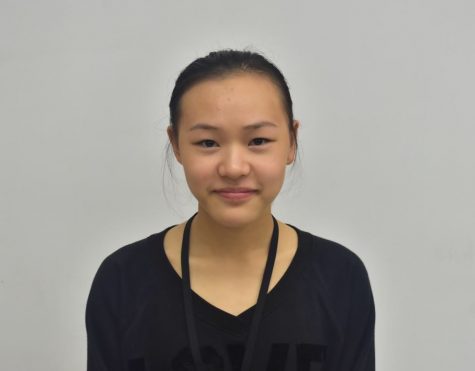Book Review: Lab Girl
November 1, 2016
Although nonfiction is not a genre I commonly indulge in, Hope Jahren’s Lab Girl was a memoir that held my attention as soon as I opened it. After my eyes skimmed over the first few pages, I already knew that I wouldn’t be able to leave without further exploring the context of lines like “When I was five I came to understand that I was not a boy.”
Indeed she is not. Hope Jahren is the daughter of a science professor and a mother with a bachelor’s degree in English literature. Her parents were both deeply passionate about science, but her mother wanted to be a scientist at a time when money and societal gender roles would not allow it. Jahren has achieved hard-earned success in the field of science, something her mother had desired and deserved. This is, perhaps, the reason that Jahren dedicated the book to her.
The national bestseller Lab Girl starts and ends in the same way, with a chapter advocating the preservation of plant life. However, at the heart of the book, Jahren has so many other things to say. She tells her life through clever scientific analogies and highbrow humor, as well as through the jobs she has had and the people she has met.
Perhaps one of the most intriguing aspects of the book is Jahren’s relationship with her lab partner, Bill. His irreverence, pessimism, and brilliance make him a highly interesting person to read about. Much of the story features Bill and Jahren’s experiences together, from joking about Jean Genet to collecting samples of moss in Ireland. They have endured debilitating incidents with each other as well, like Jahren’s bipolar episodes and Bill’s discontentment with his quality of life. Jahren tells these stories in great detail, portraying what she felt at the time, while also providing a retrospective view of things. This style of writing immerses readers into her world and allows us to understand the way she thinks. Jahren formats parts of her book to resemble text from the genre of fiction, yet she also maintains a refreshingly realistic prose.
“People still puzzle over the two of us, Bill and me. Are we siblings? Soulmates? Comrades? Novitiates? Accomplices? We eat almost every meal together, our finances are mixed, and we tell each other everything. We travel together, work together, finish each other’s sentences, and have risked our lives for each other. I’m happily married with a family and Bill was an obvious precondition to all that, a brother whom I would never give up, part of the package. But people that I meet still seem to want a label for what is between us…I don’t have an answer for that one. I do us because us is what I know how to do.”
Of course, Lab Girl is also about science. The book provides countless scientific experiments described at length. I am not a huge fan of science; however, Jahren’s vivid and humorous descriptions made these studies truly interesting to learn about. Through these descriptions and many others, it is also clear that Jahren loves to write. I found the way she can “sift through the thesaurus for hours” and enjoys the feeling of “finding exactly the right words that stab cleanly at the heart of what you are trying to say” truly relatable. Jahren is an amazing writer, much like she is an amazing scientist. She makes her ambitions and passion for science clear: Relating her life experiences to nature through analogous vignettes, thoroughly explaining the experiments she has done and the reasons she is so attracted to science and her responsibility to the field. “As a female scientist I am still unusual, but in my heart I was never anything else.” Jahren’s memoir, brimming with passion, serves as an inspiration for aspiring scientists, nature-lovers, and even writers like me.



